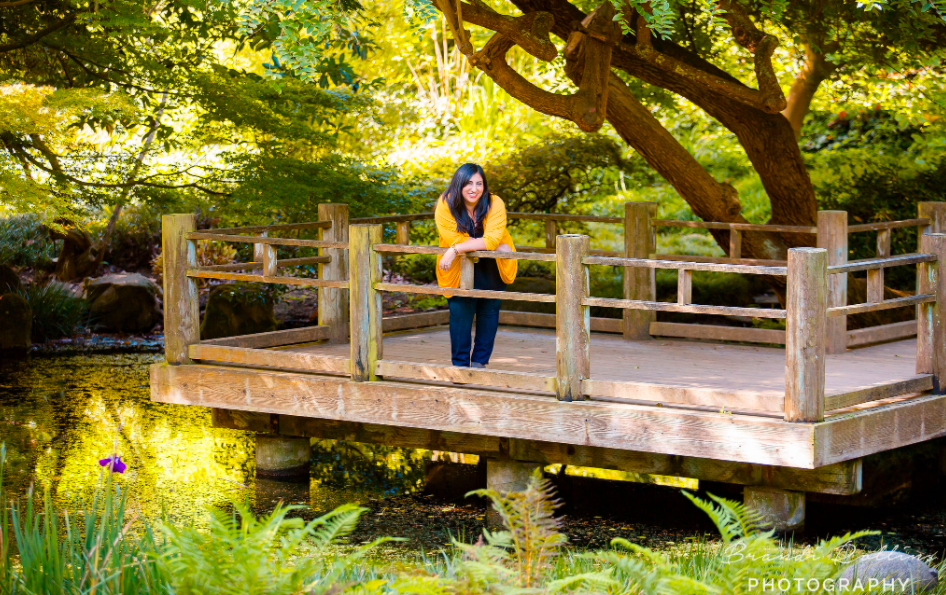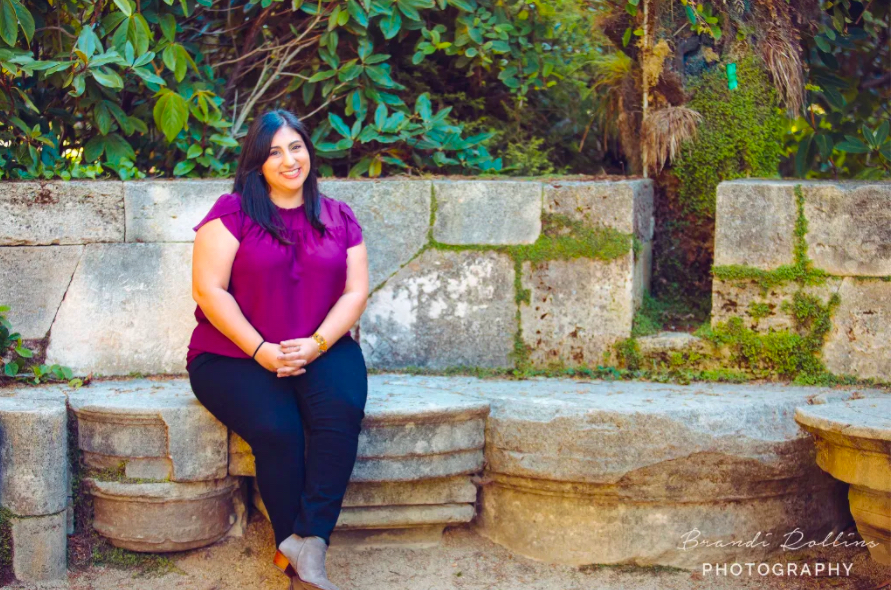Japan is seeing a surge of suicides among women and young people during the pandemic, according to a recent news report. There is a dire need for mental healthcare, including therapy, especially for those who are socially isolated or living alone and have limited social interaction with the outside world. In comparison to the U.S., it is not as common for the Japanese to seek help from a therapist. There is still a strong social stigma to openly discuss mental health issues.
Laura DeSantis, a licensed therapist based in San Francisco specializing in trauma, has been facilitating live online classes with Coa, an online platform that offers emotional fitness classes and one-on-one therapy, to bolster participants’ mental health. These classes are framed as “group emotional fitness workouts”.
In this interview, Laura shares her insights on how we should approach therapy, how we can find ways to strengthen our mental health, and the importance of giving ourselves permission to express our vulnerability. As Laura said: “Name your emotion. It’s not a luxury, it’s a necessity.”
Many people are typically not taught how to name their emotions. That is usually a skill that is taught, and then practiced, and then mastered.
―― I first learned about your work when I participated in the Live Q&A: Living Solo During the Holidays, right before the Holiday Season. How did the pandemic impact the Holiday Season?
Laura: I was hearing my clients say that they normally love living by themselves, but once they were told to stay inside and be isolated, then challenges started to emerge because they were alone all the time with no other options. I was seeing more anxiety and depression, and people were really missing human connection. The holiday season amplified all of those feelings, and that was when I had the idea of doing the online program.
―― I remember you saying that if you are not in the mood to celebrate, you don’t need to force yourself to enjoy the holiday season with others.
Laura: There is always pressure to have fun during the holidays and have fun with your family, even during a normal year TV shows or advertisements show so much joy during the holidays, and the truth is that this is not a reality for a lot of people. This year, folks had an opportunity to be alone. With that came an opportunity for us to decide, as individuals, how we want to experience this year’s unique holiday situation – whether it was a time of reflection, or just ignoring what day it is.
―― During the Live Q&A, I felt motivated to stay mentally fit, as if I were attending workout classes. I also thought that therapy can actually be a fun activity.
Laura: People have a perception that therapy is intense, scary and serious. It’s important for therapy to be a little lighthearted. It can be therapeutic to laugh at ourselves, and confront some shame with a little bit of humor. If you are in a group, hearing from other people can lighten things up. Then we are not alone. Other people may say something that we can relate to, and it’s serious, or they may joke about something, and it makes us realize that we can laugh at ourselves, too.
―― Do we need to train ourselves to reflect deeply and face our inner pain and suffering, the way we train ourselves in a gym?
Laura: I do agree that there are similarities between physical fitness and emotional well-being. A lot of people are not taught how to name their emotions. That has to be a skill that is taught, and then practiced, and then mastered. Therapy is a great way to work out those muscles, and doing so is an ongoing process towards greater psychological strength. In that sense, it’s a correct metaphor with physical fitness. What is different is that once we face some of our inner demons and confront our suffering, there can be healing. Once you reach that place, you don’t necessarily have to go back to it all the time. It will always be part of your story and have a place in your life, but the ongoing distress it causes won’t be there, and you don’t have to keep reflecting on that pain forever.
When we name a negative emotion, it lessens its intensity.
―― As for therapy, is there a way to identify the problem yourself, and know if you need to see a therapist?
Laura: People go to therapy for all types of reasons. Some people just want therapy to be part of their life and their wellness, or they want to get to know themselves better. That’s a totally valid reason for coming to therapy. Often, people do end up in crisis, and they wait until they’re actually suffering to get help, as we’re not really taught how to notice when we are headed in a bad direction. I generally tell people that if you feel like something is off, something doesn’t quite feel right, you probably are on the right path in terms of thinking that you might need some help. What’s cool about therapy, is that you can come in and say you have not been feeling yourself. A good therapist will say let’s dig into it, and help you sort of break down what you’re noticing. I don’t know if people necessarily realize that therapists can do that, that we can help you identify what’s wrong. At the very least, if you’re dealing with something, whether it’s just anxiety or depression, or addiction, if it’s interfering with your life, like you’re having trouble sleeping, eating, you’re not in the mood to do things that you really like to do, that means that your quality of life is being affected. That is definitely an indicator to get some help. But you don’t have to wait until that point. We can help you to avoid getting to that point, by being a little more proactive.
―― In Japanese culture, people need to overcome personal embarrassment, to express their fears and inner selves. How can people get past that hurdle?
Laura: I know that there are a lot of cultures where this is very common. Talking about emotion is just not something that you do. Saying that you don’t feel well or you have difficult emotions may be seen as a sign of weakness, or that something is wrong with you. And luckily, I think that there are so many people doing amazing work to challenge that, because that is not true. They are pushing back against that stigma in each of us, so we don’t feel powerless to the society that surrounds us, no matter what culture we’re part of. It’s part of therapy to confront some of the shame or embarrassment that comes with saying, I actually am not doing well, and I could use help. And it’s a muscle that needs to be, first of all, identified, and then practiced, and worked. It takes a long time to even be able to name the emotions that people are feeling, because emotions are a set of vocabulary. If you don’t know the words, how can you express yourself? I love teaching people how to name their emotions. There are studies that show with brain scan imagery, that when we name a negative emotion, it lessens its intensity. People notice that happening in therapy, and they feel relieved. Hopefully, that snowballs and leads to more positive outcomes in people’s lives.
To deal with the cultural aspects, it can help to find a therapist that shares your culture or, at the very least, find someone that is proficient with your culture and knows the issues, because it’s not just about learning to name sadness or fear. It’s everything that goes with that, pushing back against everything you’ve been taught and deciding what is working for you and what’s not. It’s a process, but when people start to feel even a little better they get motivated to keep going.
It’s more about knowing ourselves, having self-compassion, and building confidence
―― How can we stay positive and look on the bright side of things, especially during the pandemic?
Laura: It requires a delicate balance. There is a push sometimes for us to just be positive, even when things are really negative. We don’t have to do that. In fact, when we deny reality, we end up suffering. First of all, it’s very important to express yourself honestly if things are bad, or you are really stressed, or there’s a lot of negative stuff going on. If we don’t allow ourselves to have the feeling, it just grows and it’ll come out in other ways, either like crying spells, or lashing out, or using substances too much, or overeating. It’s really important to name the emotion. It’s not a luxury, it’s a necessity. It wouldn’t do anyone any good to say that things are great; however, we don’t want to get stuck in that negativity, at the same time.
I think that having a gratitude practice is so amazing. You can step back, and say things are really hard right now, but you are so grateful that, for example, you have your cat and your partner, or you’re really grateful you got out of bed today. For people with depression, that is a big deal. Just know that there are things to be grateful for. In addition to the gratitude, it’s important to notice where we have control because it’s very human to want to be in control. When we feel we don’t have it, we get anxious. When we find that and hold on to it, we feel more empowered. Noticing where we have agency makes it easier to live outside of the constant negativity;it’s a more balanced way of living.
―― How can we tell if we have succeeded in facing our inner self, or not?
Laura: Success in facing our inner self is going to differ for everybody based on what our values and desires are, and how much we’re willing to examine parts of ourselves that are wounded or that we just don’t like. People generally know when things are not working for them and want to feel “better.” But one of the questions that I often ask in therapy is, when you say you want to feel better, what does that look like? Is it about being able to get out of bed every morning, or getting a particular job? Usually it doesn’t end up being accomplishment-oriented because we can be very accomplished and still be miserable; it’s more about knowing ourselves, having self-compassion, and building confidence. We tend to treat ourselves better when we understand ourselves. And these aren’t things that can necessarily be measured, but we can feel them. The first relationship and the last you’ll ever have, is with yourself – so nurture it!
The first relationship and the last you’ll ever have, is with yourself.
―― As a professional therapist, do you have any advice for people on how to enjoy the alone time?
Laura: First of all, kudos to people who are learning to be alone and enjoying that solitude. It’s a process, because sometimes we don’t really know ourselves very well. And we have to start to get to know who we are as a friend. Identify things that you’ve always wanted to try but haven’t, then try that. When you’re by yourself, do you tend to zone out and not be present? If you zone out, that might mean there’s some difficulty being by yourself. Maybe anxious thoughts come up. Find activities that matter to you; incorporating your values is really important. I recently saw something, actually on social media, and it was about love languages (the manner in which we best give and receive love).. For some people, they will feel really loved when someone does something nice for them, or says something nice to them. If you know how you would like to be treated by other people, treat yourself that way, and then maybe you’ll enjoy being by yourself more.
―― Lastly, do you have any advice on how we can balance our lives with the social media?
Laura: There are a lot of negatives that come with ongoing social media intake. While it offers connection and entertainment, it’s really addictive. You just end up on your phone scrolling, scrolling, scrolling. It’s not good for your brain. It’s not good for your eyes. Also, how often do you post about having a terrible day, and how bad your hair looks? Rarely, if ever. Everyone puts out their best self, and all you see is the best version of everyone else, and your self-esteem can take a real hit. That’s a big problem. And the way the algorithms work, social media keeps us in an echo chamber, filled with bad news. We have to purposefully fight to get out of that. Balance can look like setting time limits on apps, or putting your phone in a different room at night to avoid scrolling while you’re in bed. It can also look like unfollowing people who cause you stress or make you feel bad about yourself, and, in turn, following accounts that bring you joy. Maybe even go for a walk without your phone and just enjoy the fresh air and your own company!
Laura DeSantis
DeSantis is a licensed Professional Clinical Counselor in the state of California. She earned Master’s degrees in Professional Counseling and in Counseling & Mental Health Services from the University of Pennsylvania. She has a BA in Public Relations and in History from Penn State University. As a therapist, her goal is to foster a space for people to explore what they want for themselves and their lives through introspection, healing, and acceptance of self. She offers an interactive style of therapy that emphasizes personal insight and self-compassion in order to identify harmful thought patterns and behaviors.
Picture Provided Laura DeSantis
Translation Fumiko Miyamoto



